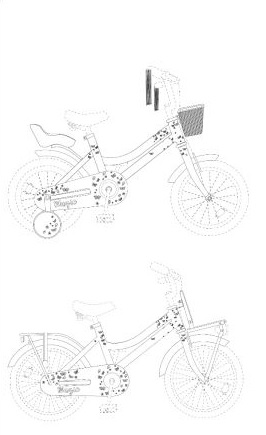Trademark agency Abcor - protect your trademark
Contact
If you have questions or want to know more about our services?Please mail: info@abcor-ip.com
Please call: 31 (0)71 576 3116
This is the Privacy Statement of Abcor BV, a company located at Frambozenweg 109-113 in Leiden. Abcor is registered at the Dutch chamber of commerce ('Kamer van Koophandel') with registration number 33296694.
Abcor BV respects the privacy of all visitors of our website. We only collect personal data necessary for the displaying of our website and the services offered thereon. In addition, we offer a number of services for which the processing of personal data is necessary, such as registration forms, contact forms and your invoice details.
Abcor BV makes every effort to ensure that all personal data that is collected by and provided to Abcor BV is treated confidentially and is only used for purposes as described in the Privacy Statement.
Abcor BV uses personal data and information only for administration and necessary handling of its services. Abcor BV does not collect any personal data unless it is provided to us via our website.
For the use of the registration form, contact form and invoice, we ask you to provide the following data:
In addition, you can choose to give us your phone number, your website address and inform us about all goods and services you want to use your trademark for. We only use these data to provide you with a suitable response.
This website uses cookies related to Google Analytics. Personal data that is collected on our website through use of cookies are only used to provide services and for analytical purposes. For more information you can see our Cookie Policy.
The personal data collected on our website is only used for purposes which they were provided for. We use the personal data from the registration form, contact form and invoice data only for the purpose of executing our services with regards to the agreement concerning your trademark registrations or registered designs. Furthermore, we use your data for analytical purposes with regard to cookies. If you have used our contact form, we will only use your personal data to contact you. We will use the registration form to file your trademarks in the public trademark registers. Via the invoice data out cost will be charged. Apart from that, we will keep you updated about the developments in our field of practice that matter for your trademark via our newsletter.
Your data will be saved as long as they are necessary for the provision of our services or as long as we have a business relationship with you. After this relationship is ended, your personal data will be deleted at latest 12 months after the ending of our business relationship.
You can request access to your personal data by sending an e-mail to info@abcor.nl or by filling out our contact form online. Following up to your request, you can ask Abcor BV for your personal data and request a rectification or addition.
You have the right to request (deletion of some personal data (right to be forgotten) and the right to have us process less data (limitation of processing). This way you can file a request for deletion of objectively incorrect data, incomplete, unlawful or irrelevant data. Also you can revoke your previously given explicit consent for the use of your personal data by Abcor BV. If you are below the age of 16, but your personal data is collected on our website, you can also invoke your right to be forgotten.
You can also object to the processing of your personal data on the ground of objections to direct marketing and if your rights outweigh the rights of Abcor BV to process your personal data. You can request insight by sending an e-mail to info@abcor.nl of by filling out our contact form online.
You have the right to receive the data that we have about you (right for data portability). This way you can transfer your data to another supplier of the same type of service. You can also ask us to transfer your data directly to another organisation. You can do this by sending an e-mail to info@abcor.nl or by filling out our contact form online. We will make sure that your personal data will be transferred in a structured and commonly used file format (such as Excel or PDF). This way your personal data is easily accessible in another environment.
If you have a complaint about the use of your personal data, you can always contact us by sending an e-mail to info@abcor.nl . Would you rather file a complaint at the Authority itself, you can follow the following link: https://autoriteitpersoonsgegevens.nl/nl/zelf-doen/privacyrechten/klacht-over-gebruik-persoonsgegevens
Abcor BV will never give your personal data to other parties without your consent, unless we are legally required to do so, for example on the grounds of a legitimate claim by competent authorities.
This policy was drafted in April 2018 and last modified in May 2018. When Abcor BV implements changes in the way they collect personal data via this website, it will be announced in the Privacy Statement. We will notify you by e-mail when major changes are made.
This privacy statement was last modified on May 11th, 2018.
